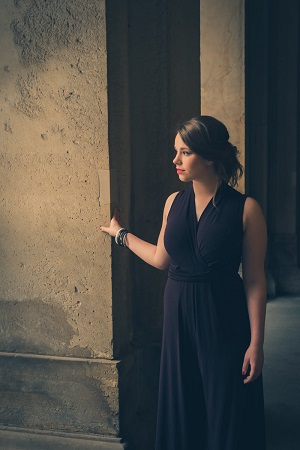
 United Kingdom BBC PROM 33 – Glanert, Schubert/Glanert, Mahler: Christina Gansch (soprano), BBC Symphony Orchestra / Semyon Bychkov (conductor), Royal Albert Hall, London, 11.8.2019. (CC)
United Kingdom BBC PROM 33 – Glanert, Schubert/Glanert, Mahler: Christina Gansch (soprano), BBC Symphony Orchestra / Semyon Bychkov (conductor), Royal Albert Hall, London, 11.8.2019. (CC)

Glanert – Weites Land ‘Musik mit Brahms’ for orchestra, (2013, UK premiere)
Schubert/Glanert – Einsamkeit, D 620 (orch. Glanert 2009)
Mahler – Symphony No.4 in G
Rarely has the BBC Symphony Orchestra sounded in such fine shape. Not since the halcyon days of Günter Wand conducting Bruckner, Schubert and Beethoven have performances seemed as impeccably rehearsed and coherent as these. It seems only fitting, then, that Semyon Bychkov’s position with the orchestra is the Günter Wand Conducting Chair, a position created for him in 2012. Deliberate or not, there is the distinct feeling that there is an element of historical continuity here.
Bychkov, who has recently taken up the mantle of Chief Conductor and Music Director of the Czech Philharmonic, has demonstrated in the past a close affinity with the music of Detlev Glanert. Mark Berry reported on a performance of Brahms-Fantasie – ‘heliogravure’ here, while in 2009 Bychkov conducted Glanert’s Shoreless River at the Proms. Bychkov’s Avie recording of Glanert’s Theatrum bestiarum with Shostakovich’s Tenth Symphony with the WDR Orchestra, Cologne is something of a classic (review). Here, we had two interlocking aspects of Glanert’s art. For Weites Land (subtitled ‘Musik mit Brahms’) we have a piece that is inspired by, nods to and pays homage to Brahms; in Einsamkeit, we have a brilliantly achieved orchestration of one of Schubert’s more extended Lieder.
This was the UK premiere of Weites Land, a 12-minute piece that takes its harmonic material from the first eight notes of Brahms’ Fourth Symphony. As new music goes, it is remarkably successful, in that by the end of the year it will have clocked up over 40 performances. While the soundscape is modernist (a gurning, keening opening), there are undeniably Romantic gestures, including a Mahlerian trumpet moment and thick, active textures that seem reminiscent of Zemlinsky. Harmonically, some simultaneities have a decidedly more Brahmsian flavour than others. Occasionally, the music even ventures into the filmic. The BBC orchestra was in fine, confident form (a particularly beautiful gesture for three trombones was particularly memorable).
Glanert has orchestrated Brahms’ Four Serious Songs: here, we were offered instead his 2009 orchestration of Schubert’s 1818 song Einsamkeit, to a text by Mayerhofer, which speaks of man’s isolation in six stages of life. Schubert’s setting lasts some 20 minutes. It starts with a desire for loneliness, a wish attained at the close. Glanert’s orchestration is remarkable, utterly respecting Schubert but illuminating at each and every turn. The piece is effectively a cantata. These extended Lieder are an utter joy, as the exploration of Schubert Lieder over at the Wigmore Hall has repeatedly shown; to bring one to our attention in this way is a gift. It is clear Bychkov understands Glanert’s orchestral writing perfectly, while the wonderful Christina Gansch sang with an easy command, her intervals exceptionally pure and clean, her sense of line impeccable. For the opening stanza, which includes a statement of that desire for loneliness (stated in quotes in Mayrhofer’s text: ‘Gib mir die Fülle der Einsamkeit’ – Give me my fill of solitude), there was a feeling of beautiful stillness. Glanert’s orchestration of Schubert’s harmonies can accentuate the frisson of angst; at other times, tripping woodwind can suddenly delight. The profundity of text and music demand a full frequency response, and this performance delivered, particularly in achieving the most electric pianissimos. The funeral march in the orchestra at ‘Gib mir die Fülle der Düsterkeit’ (Give me my fill of gloom) held a Mahlerian pathos, while Bychkov’s characteristic attention to detail paid off multiply, just one example being the perfectly balanced brass chord at the moment that those in mourning greet the survivors of war.
Gansch has a darker soprano sound when required, too, which she used to fine effect at the song’s close. A remarkable first half, stimulating and emotionally engaging.
Mahler’s Fourth Symphony received a radiant performance, one full of illumination from within, in one sense – and one that gifted illumination of the score, too, in its focus on Mahler’s contrapuntal, linear workings. There was at times a Boulez-like sense of transparency to Mahler’s workings, but coupled with deep emotional engagement. Throughout, Bychkov’s speeds exuded a feeling of rightness; more, he understood the value of Mahler’s juxtapositioning of panels of music, so that Luftpausen were exquisite. Leader Igor Yuzefovich’s solos were remarkable, pure of tone and intonation (some fantastic hairpins) and joined at one point in the second movement by the evidently equally talented first desk violinist Cellerina Park – the two just shone. That second movement also held some phenomenal clarinet work – the section sounded just so Mahlerian.
Gansch entered between the second and third movements. The third turned out to be the very sonic definition of Mahler’s ‘Ruhevoll’ (restful) indicator, strings sublime, Helen Clinton’s oboe like a ray of light. One of Bychkov’s many strengths is that he does not need stretched-out tempos to be profound (as the finale to his recent recording of Tchaikovsky’s ‘Pathétique’ Symphony with the Czech Philharmonic shows). Proper pianissimi, tempos related impeccably, and even a shadow of the spirit of the dance resulted in a remarkable experience. Some lovely contributions from Principal Horn Nicholas Korth were notable – he was consistently excellent throughout, in fact. Intelligently delineated rather than emotionally saturated, this was an inner journey, the only continuation of which could be in Heaven. And so it was, with Gansch once more in top form, fresh-voiced and full of wonder at her heavenly surroundings, and with perfect attention to text: the dotted rhythms of the opening lines were full of life. Her diction, too, was the perfect blend of enunciation and line (‘Metzger Herodes’ is surely always a bit of a mouthful to sing). Very little vibrato kept her sound at its purest, while Bychkov was with her every step of the way. The close was a remarkable leave-taking into the realm of bliss.
What with Salonen’s superb Bruckner the night before (reported on by Alan Sanders here), this was quite a weekend.
Colin Clarke